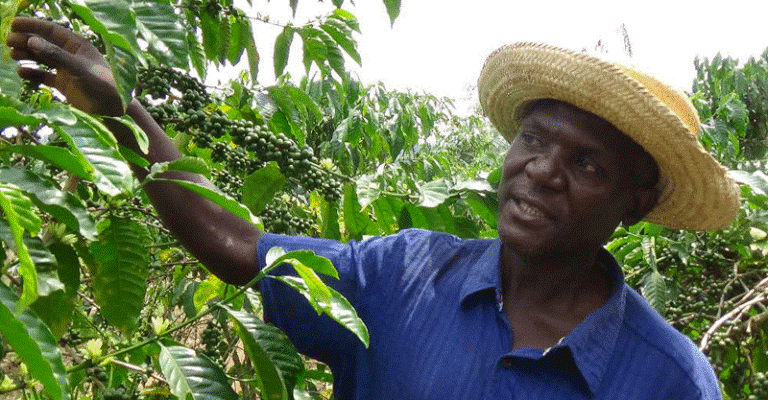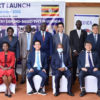Education
Coffee farmers tipped on boosting earnings

About half of all the 3.6m agricultural households in Uganda are engaged in coffee production, according to the Uganda Bureau of Statistics (UBOS) Census of Agriculture 2009/10 report. This means that coffee is an important crop not just in terms of foreign exchange revenue for the country, but also as a source of income for a good proportion of the population.
However majority of coffee farmers remain trapped in a vicious cycle of poverty, arising from flat and declining yields witnessed over the past couple of years. Low yields have been caused by loss of coffee trees to pests and diseases, declining soil fertility, poor quality of output and frequent droughts.
The other major reason for the persistent poverty among Uganda’s coffee farmers is the fact that they get a fraction of the overall value of coffee sold in international markets through selling of unprocessed to semi-processed coffee beans. Middle men, working with roasters in Europe and America, bag the lion’s share of the off the shelf price of coffee.
Because of coffee’s potential to contribute to poverty reduction efforts, the government of Uganda in 2016 announced an ambitious goal of increasing coffee exports from about 4 to 20 million 60kg-bags of coffee annually by 2030. The original target of scaling up production had been the year 2020, but was postponed to 2030 for yet unclear reasons.
It is however clear to many coffee farmers and dealers, that prevailing conditions are not conducive for achieving that ambitious target.
For example, although the government has been distributing free coffee seedlings across the country, the process has left a lot to be desired. To start with, there is little or no follow up among farmers to ensure that those who receive the seedlings, actually plant and care for them.
In addition, the bulk of the coffee seedlings that have been distributed don’t have the potential to yield up to the desired levels because they are an inferior variety, which, according to some farmers this writer has spoken to, are susceptible to some of the most vicious coffee diseases like the coffee-wilt disease.
A new study by the Economic Policy Research Centre (EPRC) of Makerere University has published a policy paper, in which it points out ways through which the country can significantly boost its revenues.
Titled; Uganda’s Coffee Product Space, published March 2019, EPRC, shows that the greatest potential for increasing farmer’s incomes from coffee lies in adding value to the coffee through grading and roasting to produce ready finished and branded products that can be sold in markets like Europe and America.
Besides working on value addition, improving the quality coffee that is sold by most farmers in Uganda, would considerably increase the revenues of farmers. For example, 85% of Uganda’s 3.2 million bags of Robusta coffee is categorised as low grade and fetches low prices.
One of the biggest factors in determining coffee quality in Uganda, is the size of the coffee beans which is determined by the variety.
According a prominent coffee farmer Michael Ssali, based in Lwengo district, clonal coffee produces very good bean sizes (up to Screen 18) for which buyers like NUCAFE can pay a premium price of USD1.8, equivalent to UGX 6,600 per kilo of dried and processed coffee beans commonly known as Kase.
In addition, NUCAFE notes that Clonal coffee yields more than three times (2,500kg per hectare compared with 700kg per hectare for the conventional varieties.
But the report argues that besides the need to increase adoption of better yielding varieties, farmers need to embrace better husbandry practices including use of fertilizers and irrigation.
Indeed, as Ssali has witnessed, low and in many cases non-application of fertilizer is one of the most important reasons for the low level of coffee output.
For him, regular application of fertilizer in his 8-acre coffee farm, has enabled him to produce 20 bags of unprocessed (kibooko) from which he gets an average of UGX 6 million.
Farmer organisation which would help to improve quality and develop grading of coffee especially for the Arabica variety has been cited as another feasible intervention by the government.
Comments























